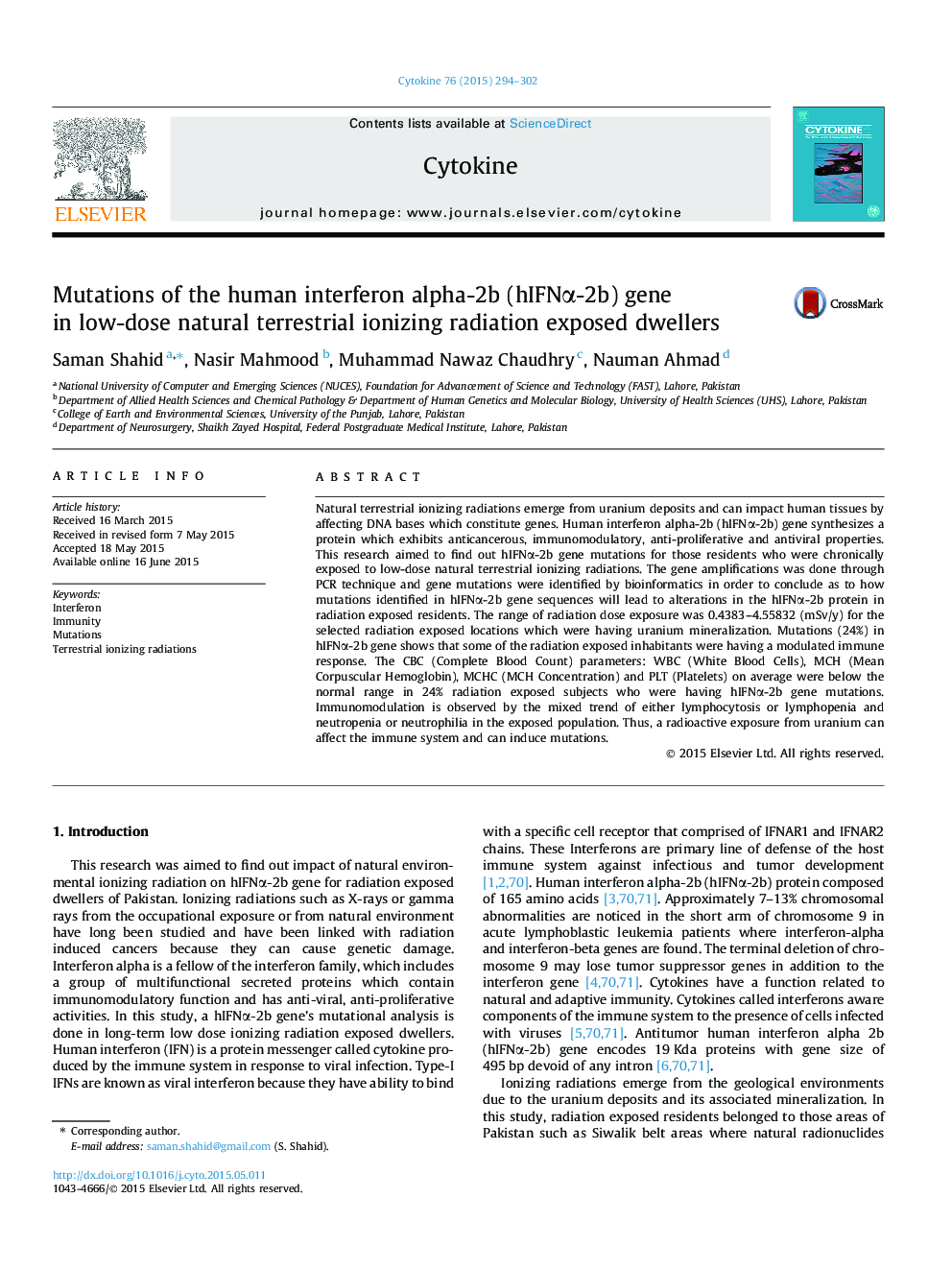| Article ID | Journal | Published Year | Pages | File Type |
|---|---|---|---|---|
| 2793970 | Cytokine | 2015 | 9 Pages |
•Collected blood samples from natural radiation exposed people.•The range of exposure was 0.4383–4.55832 (mSv/y) for the selected regions.•Total 24% human interferon alpha-2b gene mutations identified.•Some of the exposed inhabitants were found susceptible to modulate immune response.
Natural terrestrial ionizing radiations emerge from uranium deposits and can impact human tissues by affecting DNA bases which constitute genes. Human interferon alpha-2b (hIFNα-2b) gene synthesizes a protein which exhibits anticancerous, immunomodulatory, anti-proliferative and antiviral properties. This research aimed to find out hIFNα-2b gene mutations for those residents who were chronically exposed to low-dose natural terrestrial ionizing radiations. The gene amplifications was done through PCR technique and gene mutations were identified by bioinformatics in order to conclude as to how mutations identified in hIFNα-2b gene sequences will lead to alterations in the hIFNα-2b protein in radiation exposed residents. The range of radiation dose exposure was 0.4383–4.55832 (mSv/y) for the selected radiation exposed locations which were having uranium mineralization. Mutations (24%) in hIFNα-2b gene shows that some of the radiation exposed inhabitants were having a modulated immune response. The CBC (Complete Blood Count) parameters: WBC (White Blood Cells), MCH (Mean Corpuscular Hemoglobin), MCHC (MCH Concentration) and PLT (Platelets) on average were below the normal range in 24% radiation exposed subjects who were having hIFNα-2b gene mutations. Immunomodulation is observed by the mixed trend of either lymphocytosis or lymphopenia and neutropenia or neutrophilia in the exposed population. Thus, a radioactive exposure from uranium can affect the immune system and can induce mutations.
